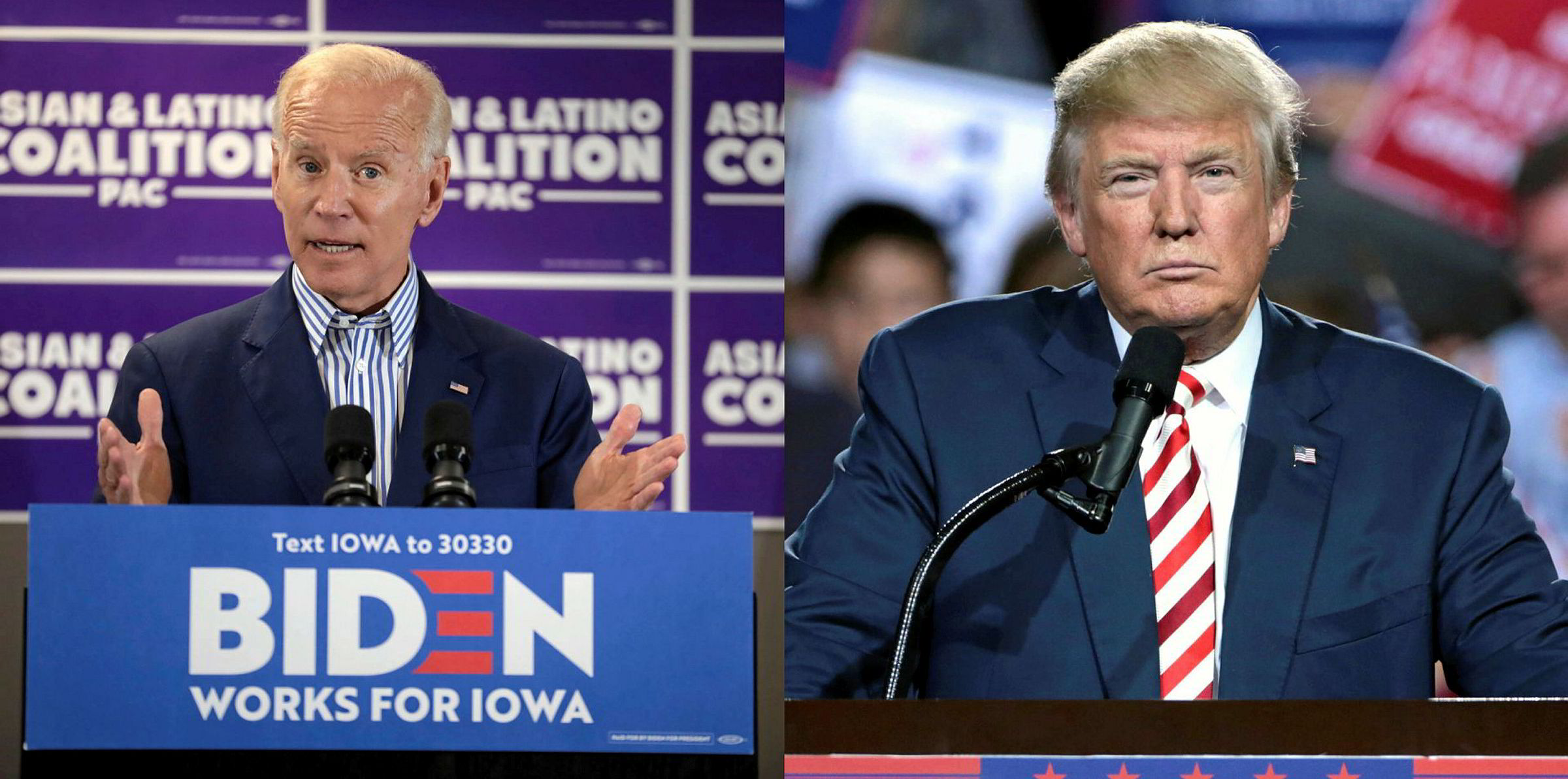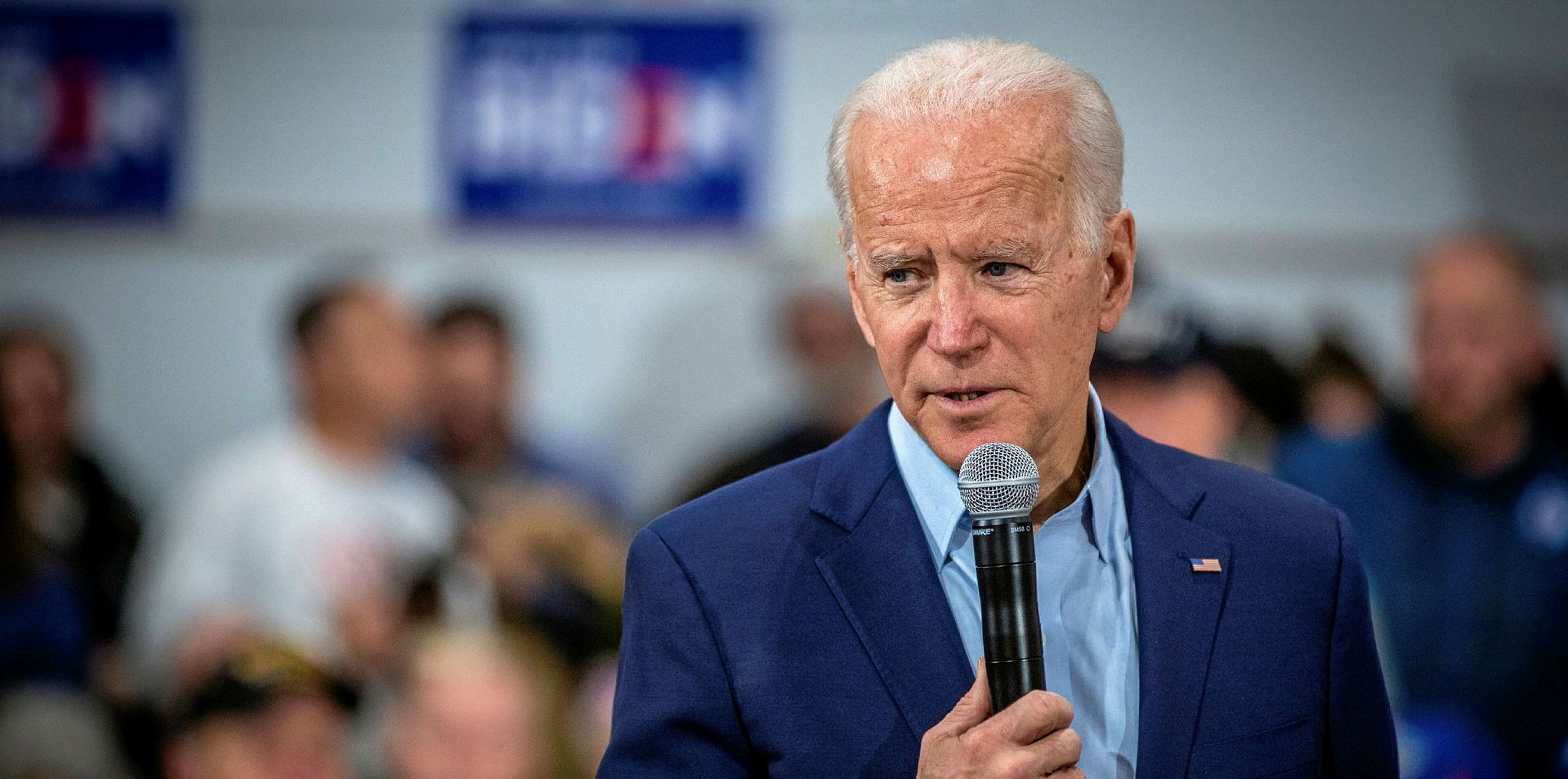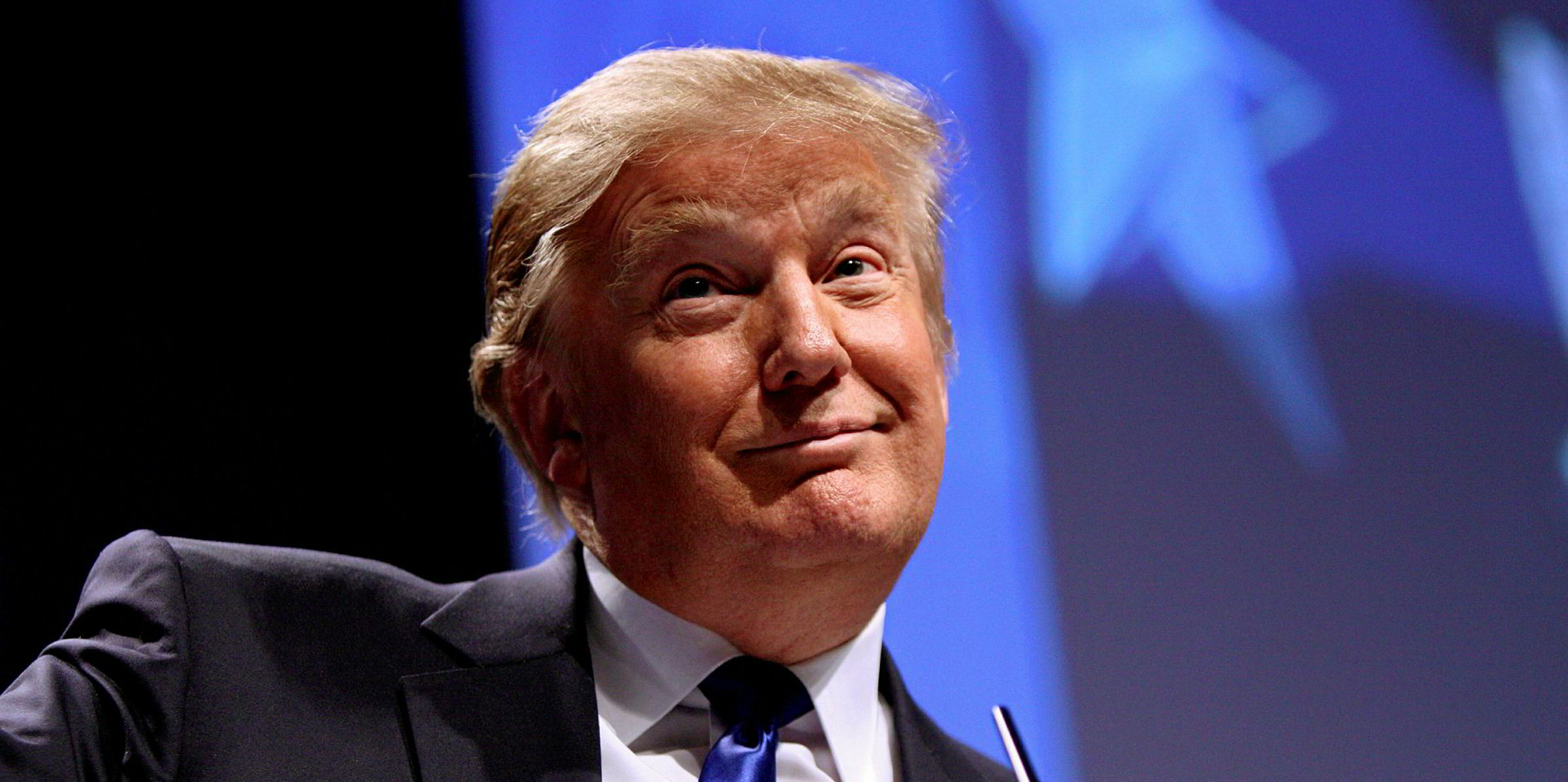Oil prices moved up and European stock markets reversed early losses as uncertainly swirled around the result of the most polarised US presidential election in recent times.
Brent crude and West Texas Intermediate were up a little under 3%, while the major European stock markets inched higher as expectations grew of a drawn out vote counting process that may not see a final result declared for days.
Both Joe Biden and Donald Trump won states that are core strongholds for their respective political parties, but each was facing a neck-on-neck battle in key swing states, which political commentators said made the race too close to call for now.
Adding to uncertainty, Trump falsely claimed that he had won the election, with millions of votes still uncounted, and said he would go the Supreme Court to fight for the win if needed, Reuters reported.
Callum Macpherson, head of commodities at Investec bank said: “In the very short term a clear Biden win could be good for oil and asset markets as it would reduce the chance of the result being contested and avoid all the uncertainty that would entail.”
Looking forward to next year when he would be sworn in, Macpherson said the fact that he seems “more inclined to support economic stimulus packages” could be good for energy markets.
“In addition, Biden is well known for being critical of the oil industry. On his election website, he talks of ending of fossil fuel subsidies.”
Macpherson said this approach, from a president, could make potential investors wary and so create challenges for US producers to raise capital to support production which in turn would be positive for oil prices.
“However, in the longer term, if Biden is able to fulfil his intention to wean the US off fossil fuel consumption, the outlook for prices would not be so optimistic given that the US is the world’s largest consumer,” he said.
A clear Biden win could be good for oil and asset markets as it would reduce the chance of the result being contested and avoid all the uncertainty that would entail
Investec
Eastport Maritime’s head of research Andrew Shipley said: “Uncertainty regarding US economic policy is ticking up as the country heads into the post-election period.
“This can prompt companies to put off investing and hiring and may cause households to delay purchases of big-tick items and is dragging on growth."
Uncertainty over US recovery
Singapore-based Shipley added that if uncertainty regarding the future direction of economic policy continues to climb in days following the election, this could weigh on the US recovery, potentially weakening imports and slowing global trade as well.
In a note on Tuesday Fearnley Securities said that while a win for Biden would be “positive” for the dry bulk and container sectors, it could be bad news for the offshore industry.
“Whilst Biden on the face of it has promoted a firmer stance on environmental policies, we believe he is unlikely to take aggressive measures against the major exploration sector given the economic uncertainties brought about by Covid-19,” the brokerage said.
Fearnley said he is “most likely going to embrace a greener profile” than president Trump, but they do not expect to see any “major near-term shifts” should he be elected.
However, longer-term, when economies are restored, the Norwegian investment bank said Biden may impose stricter regulatory frameworks which could negatively impact the domestic US offshore industry.
On the issue of tariffs, Fearnley said that whilst Biden has not communicated a firm stance on global trade, it is widely believed he would adopt a softer stance than president Trump.
“For shipping, tariffs are always negative, and we believe Biden is more likely than not to loosen up trade barriers imposed by President Trump,” Fearnley said.
It is also widely believed that Biden will take a softer stance on Iran, seeking to bring the country back into the 2015 nuclear accord which he brokered as vice-president under Barack Obama.
“In such an event, Iran would potentially add some 2m bpd into international trade whilst much of the NITC fleet potentially could return to the trading fleet,” said Fearnley.
“Should Iran open its sluices without any offsetting measures from OPEC+, this would likely have an adverse effect on crude prices, potentially steepening the contango.”
“As such, this would be a positive short-term boost for tanker through increased volumes and/or potential floating storage but would be detrimental medium to long-term as the oil market works through a prolonged inventory drawdown cycle.”






